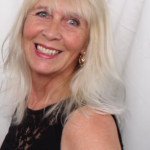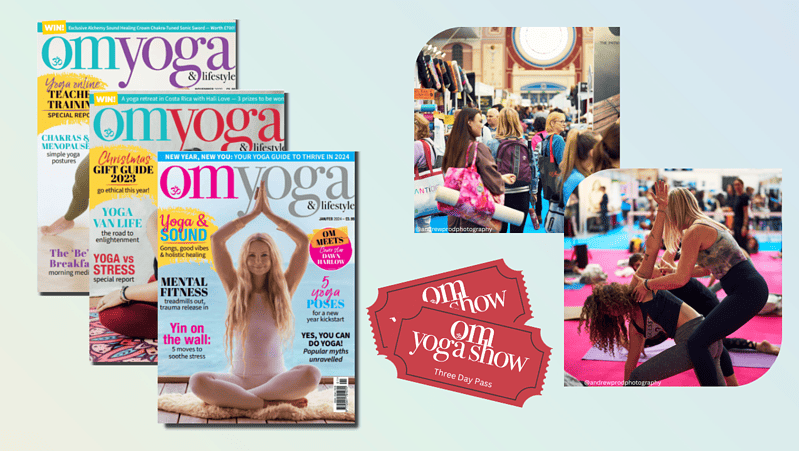
Memory, I salute you
Can regularly practicing a yoga sequence help boost our memory? By Diane Ashfield
I was very sad to hear the recent news of screen legend Bruce Willis being diagnosed with dementia. This prompted an article in a national newspaper deliberating how rare it is that singers and stars of screen and stage develop this incredibly debilitating disease despite the statistics of it affecting a quarter of all men and a third of women.
Dementia is defined as a deterioration in cognitive function (i.e. the ability to process thought) beyond what might be expected from the usual consequences of ageing. It affects memory, judgement, orientation, comprehension, calculation, learning capacity and language, and at present there is no known cure. Considering that there are approximately 55 million people worldwide suffering from this condition, why is it so rare to hear about a celebrity developing dementia?
Apparently having vast wealth plays a huge part in keeping dementia at bay for celebrities – being able to pay for the best medical care, top fitness trainers and personal chefs enables the rich and famous to live longer and healthier lives than the rest of us mere mortals. This is a valid point, but is that really case closed? Could there be any other contributing factors to why actors and singers are rarely diagnosed with dementia?
I was recently watching the lovely Dame Judi Dench sitting on the sofa next to the equally lovely Hugh Jackman on The Graham Norton Show and telling him how she was having trouble learning her lines these days because of her failing eyesight. You would probably expect this considering that Dame Judi is 88 years old, but what I found really interesting is when she told Hugh that as soon as she had committed her lines to memory those words remained with her forever – apparently, she could easily recite the whole of Twelfth Night to him if he wanted!
This made me wonder whether regularly committing poems, song lyrics and movie scripts to memory is why movie stars and singers rarely succumb to the ravages of dementia. Could memorizing your shopping list, your local cafe’s menu or learning the words to The Owl and The Pussycat or a hymn such as Jerusalem give our grey cells a boost – enough to ward off any symptoms of mental deterioration? It’s certainly worth a try, but could this also apply to our yoga practice? Could learning a sequence of postures have the same effect as learning a series of words or lyrics?
For regular yoga practitioners, learning a yoga sequence is definitely a good way of boosting brain cells as well as developing a strong body. The easiest routine to commit to memory is a Sun Salutation. This can begin with just a few elements such as mountain pose (Tadasana), forward bend (Uttanasana), downward facing dog (Adho Mukha Svasana) and Warrior I (Virabhadrasana I), working the sequence in reverse to come back into Tadasana and then repeat on the other side. Once we become accustomed to the routine, we can easily add more elements to our Sun Salute, maybe incorporating a backbend such as upward facing dog (Urdvha Mukha Svasana) or introducing a twist with Warrior I with the hands in prayer and the elbow against the outside of the leading thigh. You can customize your Sun Salutation to suit what feels good for you and your level of experience, plus you can either work quickly to generate heat for a more cardio-vascular exercise or you could slow it right down and hold each pose in your sequence for five breaths or whatever works best for you to build on strength and stamina.
"So could remembering a set or sequence of yoga poses help keep dementia at bay? More research is being carried out on the effects of yoga on the body and mind..."
Sun Salutations aren’t everyone’s cup of tea, so perhaps a Moon Salute would work better for you? The principles are basically the same, but we work from kneeling and stepping one leg forward instead of standing (have a blanket or padding under the knees for extra comfort). We can take it into an upward lift with arms towards the ceiling, then maybe a forward fold, a twist, a stretch or a mini back bend, working each movement with the breath, returning to the starting position and then repeating with the other leg leading. Again, we can incorporate whatever elements we desire into our Moon Salute as we progress to make it unique to us.
Maybe you’d like to take your practice a step further by considering an Ashtanga or Vinyasa class. Ashtanga is a style of yoga which incorporates six levels of asana sequences linking the breath to each movement. Practitioners begin with the basic sequence of poses and work their way up to more challenging sequences once they have memorized and mastered the previous set. Vinyasa yoga is a fast-paced physical practice of yoga focussing on linking yoga poses together in a smooth, fluid movement.
Of course, you don’t have to leave the comfort of your own home. There is an abundance of internet classes to try out and free-to-view recordings online to practice and inspire you to develop your own sequence of postures which meander and flow into each other. Write it down, play around with it – but then most importantly, memorise it.
So could remembering a set or sequence of yoga poses help keep dementia at bay? More research is being carried out on the effects of yoga on the body and mind, but for people currently living with dementia, yoga encourages them to focus on the here and now without the pressures of remembering facts, or the pressure of meeting anybody’s expectations. Yoga brings the mind to a state of peace – inspiring us to focus on our breath and 'just be.'
Lastly, we might not all be as lucky as Dame Judi by reciting the whole of Twelfth Night to Hugh Jackman, but on the off chance that you decide to memorise the words to the hymn Jerusalem, take note of one of the lines: “I will not cease from mental fight.” Remember that.





